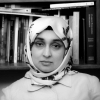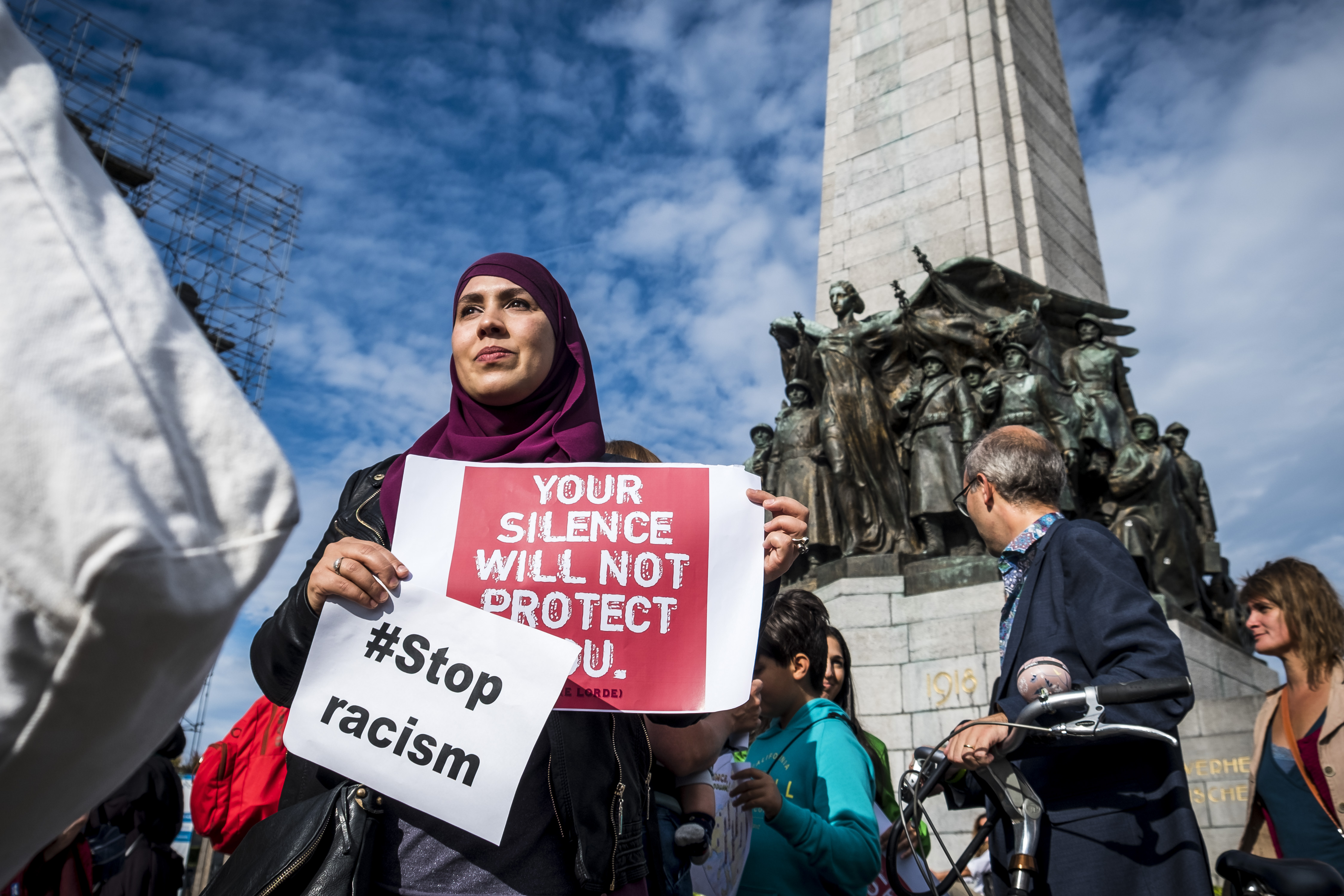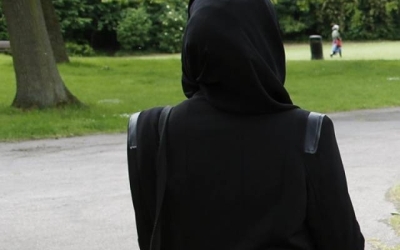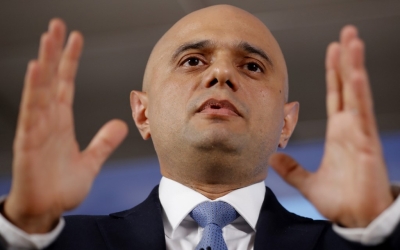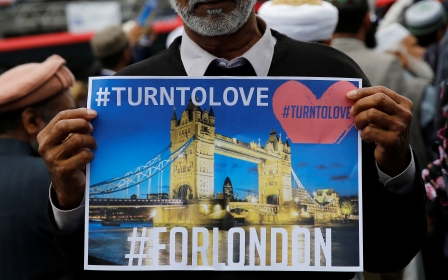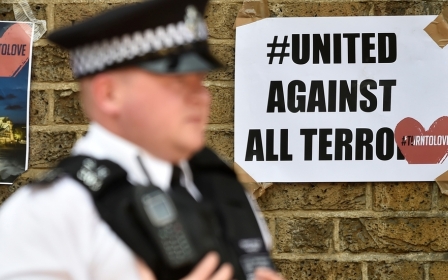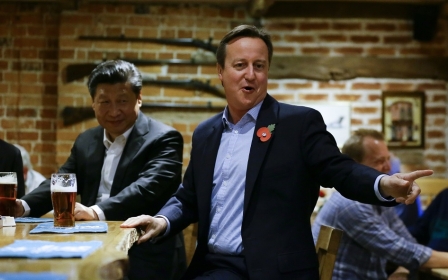First Muslims, now the left: How the UK government has Islamised dissent
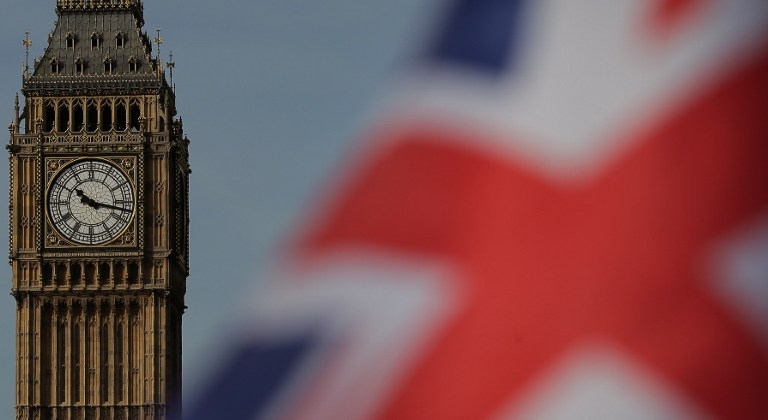
The document released by the UK Commission for Countering Extremism, titled "Violent extremist tactics and the ideology of the sectarian left" reads more like a textbook of sectarianism than an analysis of its ideas and methods. It is deeply alarming.
Earlier this year, I noted that despite all the legal advice and failed attempts to bring in counter-extremism laws that would target legitimate civil society groups, Muslim activists would still end up facing a definition that would further marginalise them.
Such groups as the Islamic Human Rights Commission, CAGE, Hizb ut-Tahrir and MEND are being targeted, with the result that civil society space is shrinking further.
Now, these same anti-Muslim tropes have been regurgitated in secular form and applied without irony to the left.
Ideas under attack
New MEE newsletter: Jerusalem Dispatch
Sign up to get the latest insights and analysis on Israel-Palestine, alongside Turkey Unpacked and other MEE newsletters
Academic Narzanin Massoumi called the paper an “outrage”, noting that it associates left-wing and anti-imperialist views with “violent extremism” and calls for the careful "monitoring" of developments on this front.
These same anti-Muslim tropes have been regurgitated in secular form and applied without irony to the left
“We can all use our imagination to know what they are suggesting by ‘monitoring’ here,” Massoumi said.
Our imaginations don’t need to do much work. Muslims have experienced this for decades. Our thoughts and work, our words and ideas, old and new, or revered as revelation, are used in evidence against us. We are maligned because of what we read as much as what we say or do.
The document’s methodology notes that researchers focused on articles from three platforms “associated with the sectarian far left”, including the Socialist Worker, the Weekly Worker and Counterfire.
The authors outline their understanding of the ideas and modus operandi of the groups under analysis, including anti-imperialist or anti-fascist ideologies - demonstrating how everybody espousing a view deemed to be “leftist” falls into this catch-all, deserving to be, as Muslims have been hitherto, surveilled and policed both literally and in thoughts.
Defining anti-imperialism
Anti-imperialist views feature heavily in this paper as an indicator of support for "violent extremism". To give an example, it is hypothesised that being critical of the US, UK and Israel would indicate extremism, and effort is put into proving this to be the case.
Put differently, how many people have opposed US and UK led wars and can therefore be defined as extremists or holding extreme views?
The Stop the War movement is named in the paper as falling foul of this, whilst some of the "most extreme" offenders from the "sectarian far-left" are deemed to be those who adhere "to the idea that, while there may appear to be many different wars, separate both in time and in space, there is in reality only one continuous war: the war that 'imperialists' wage on 'the oppressed'."
Given that the numerous wars opposed by the anti-war movement almost all fall under the rubric of the "War (singular) on Terror", this is perhaps a bit harsh.
Anti-fascist ideology
And so to anti-fascism. This paper surmises happily that "it is likely that most British adults are anti-fascist in the broad sense... By contrast, the sectarian far left’s 'anti-fascism' is an ideology in its own right…"
Islamophobia, and the grievances of Muslims protesting - even in the meekest form - their experiences of structural and street racism, has long since been a battleground between social movements and anti-racist civil society on the one hand and the British state and its acolytes on the other.
The demand for equality is used against those Muslims who understand Islamophobia as anything other than the ranting of a few odd-ball racists living in an otherwise post-racial utopia.
Anti-fascism – as an ideology – is now also firmly placed in the Islamised bracket of politics.
Neither I, nor I suspect, many others are as confident as the authors about the wider public’s anti-racist and anti-fascist credentials (look at the vote for and statements of members of The Brexit Party).
Demonising anti-fascism thus, as with different expressions of anti-racist thought (in particular with regards to Islamophobia) takes us down the road, already well worn, where those who are often-time victims of ideological and street hatreds, be they "fascism", "white supremacism" or a combination or any other sort, are blamed for their situation.
Potential for abuse
Cue former home secretary Sajid Javid’s speech earlier this month, accusing CAGE and other groups of extremism, who will doubtless feature in much of the next document from the Commission for Countering Extremism.
The delegitimisation of racism as a grievance has been ongoing for some time. Equality, non-discrimination, protection from hate and violence, a culture that does not reproduce the tropes that cause these in spades - all are now delegitimised grievances, signs of that elusive "extremism" of which Muslims have been accused, up and down a sliding scale of religiosity and political awareness.
Sometimes it’s your hijab, other times it’s your vote. Sometimes you are a mujahid for the oppressed, and opposer of the mustakbarin (hegemonic), other times you are left-wing.
Now the left-wing is sometimes you. Who will be next? I doubt we will have to wait long to see.
The views expressed in this article belong to the author and do not necessarily reflect the editorial policy of Middle East Eye.
Middle East Eye delivers independent and unrivalled coverage and analysis of the Middle East, North Africa and beyond. To learn more about republishing this content and the associated fees, please fill out this form. More about MEE can be found here.


